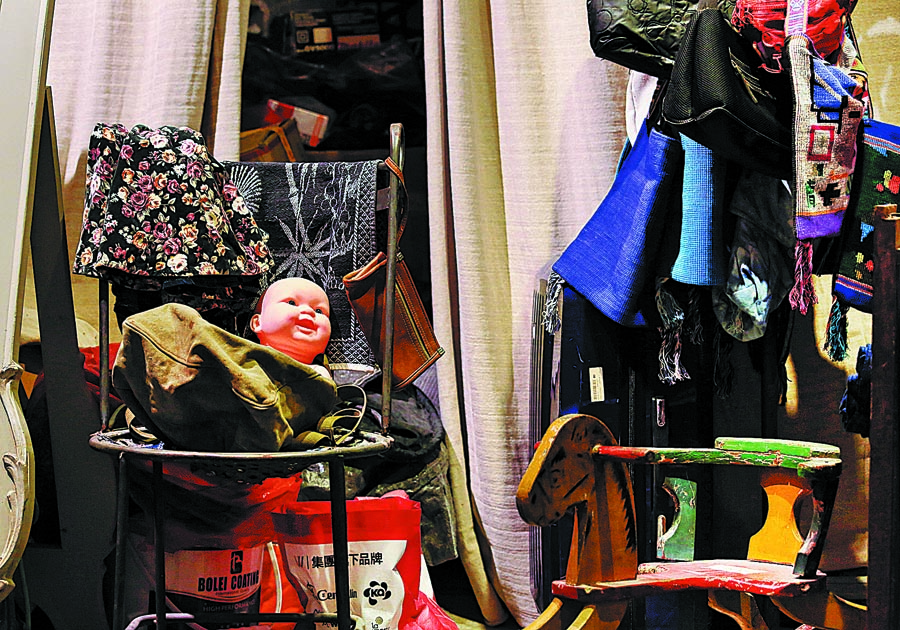

"I do look for stuff in local flea markets, but sometimes you can also find really interesting objects in rubbish bins," Wu says. "I occasionally get calls from people asking me to come around and pick things up that they no longer need, including things that belonged to people who have died."
The first time he went to a flea market was in Guilin, Guangxi Zhuang autonomous region, in 2014, when he was a college student, where he spent 5 jiao (less than a US cent) on a wine bottle, he says.
It was a trip to the United States that made him realize the prosperity of the secondhand market. In 2015, from May to September, he traveled to more than 20 cities in the US, and visited many flea markets and secondhand shops. He says that he didn't spend a cent on accommodation, sleeping in parks, friends' homes or on university campuses.
"I found it easy to get information about flea markets in the US, and when visiting those places, I bought many things I needed, such as clothing and shampoo," recalls Wu, 27.
Wu, born into a common, working-class family, has been following a thrifty lifestyle since childhood.
After returning from the US, he says, the only thing he has bought new has been his underwear, and that he has spent many hours scouring flea markets.
For three whole weeks, he had conducted intensive research to find 12 such markets, including an antique market on Guangzhou's Wenchang North Road, a market selling old books on Haizhu Road, a market selling secondhand electronic devices in Baiyun district and one selling groceries in Liwan district.
Once he knew their locations, he says, he began visiting them almost every day.